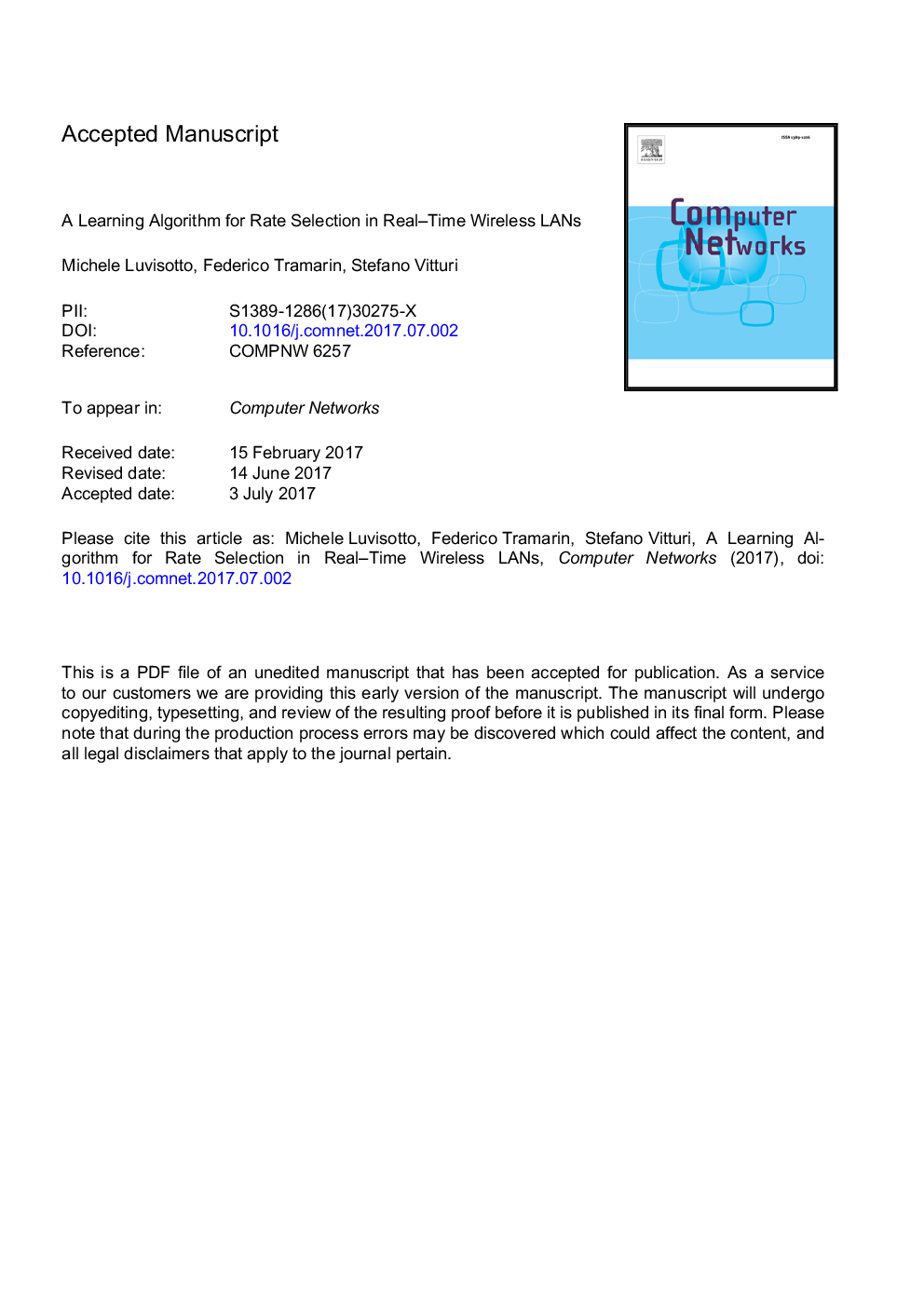| Article ID | Journal | Published Year | Pages | File Type |
|---|---|---|---|---|
| 4954688 | Computer Networks | 2017 | 14 Pages |
Abstract
To achieve a real-time behavior in wireless communication systems, the multi-rate support (MRS) provided by the IEEE 802.11 Wireless LAN standard may reveal particularly advantageous. Unfortunately, the most widespread rate adaptation algorithms designed for general purpose applications proved to be unsuitable for the challenging real-time scenario. This has led to the definition of purposely designed algorithms such as RSIN, a rate adaptation technique based on the SNR measurement, which showed very good performance in terms of timeliness and reliability. The goal of this paper is to propose an improvement of RSIN that extends its applicability to a wider range of applications. To this aim, we introduce RSIN-E, an enhanced version of RSIN based on an estimation of the SNR obtained through a learning algorithm. In detail, this paper first provides an exhaustive description of both the proposed learning algorithm and the relevant estimation procedure. Then it presents an extensive performance assessment of RSIN-E⯠carried out via both experimental sessions and simulations. The obtained results confirm the effectiveness of the proposed technique and highlight that its performance figures are comparable with those of RSIN, and significantly better than those of Minstrel, a widespread rate adaptation algorithm adopted by most general purpose applications.
Keywords
Related Topics
Physical Sciences and Engineering
Computer Science
Computer Networks and Communications
Authors
Michele Luvisotto, Federico Tramarin, Stefano Vitturi,
